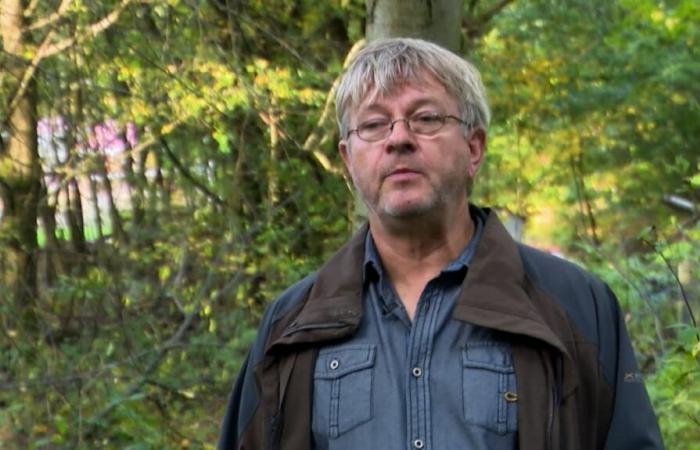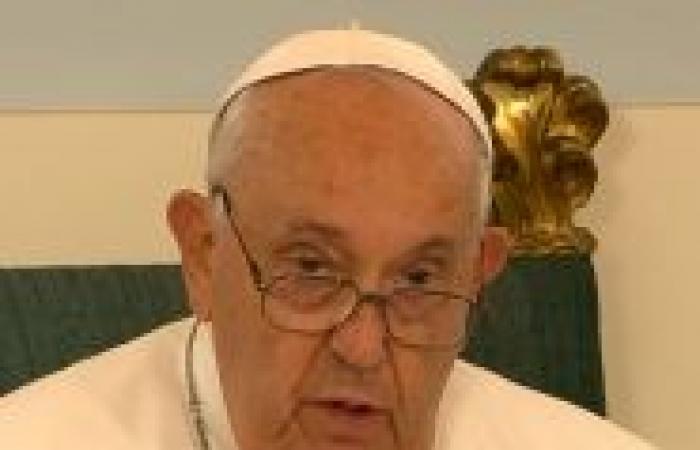Nearly five weeks ago, Belgium welcomed the Pope. The Sovereign Pontiff had sparked controversy among us with his remarks on abortion and the status of women.
Consequence: today, several hundred Belgians wish to be rebaptized. Why make such a decision? What does the approach represent in the eyes of the Church?
Nearly five weeks have passed since the papal visit, and Stéphane still has difficulty accepting the pontiff’s comments on abortion. “Doctors who perform abortions, pardon the expression, are hitmen“, the Pope declared at the end of September. Other remarks were also surprising, notably those on the role of women in Belgium. “The woman is welcome, fertility, care and vital devotion, therefore the woman is more important than the man. But it’s sad when the woman wants to imitate the man, because she remains a woman“, the Pope said at UCLouvain.
I fell from a very high place
“I fell from a very high place compared to this person, especially after all the promises he made when he acceded to the papal throne a few years ago. It is a huge disappointment and great anger. I told myself that the Pope did not understand the country where he was“, explains Stéphane. Baptized as a child, he grew up in a family that went to church for significant events, but without being a regular practitioner. “It was for baptism, marriage, important moments of life with the family, but we were not at all a practicing family“, he continues.
Many people rename themselves
Following the Pope’s words, Stéphane decided to rebaptize himself. He also wrote an open letter which collected hundreds of signatures from citizens wanting to follow the same approach. Among the 525 signatories, a woman presents herself anonymously under the name of Valérie and describes herself as “assistant to hired assassins“. A psychologist, she supports women who are considering abortion on a daily basis. “For those who feel guilty about their religion or who fear being judged, this is a catastrophic situation. Some women also fear judgment from their community or family. Some talk about it openly, others keep everything to themselves“, specifies Valérie.
Baptism had never been a problem for Valérie until then, but Pope Francis’ statements created a breaking point. “It was an idea that was running through my head, there are steps to be taken and I let it go. But after these words, it was impossible for me to continue to be associated with the Church in one way or another“, she said.
Since September, the Secular Action Center has received hundreds of emails from citizens seeking to distance themselves from the Church. “It is difficult to quantify precisely, because these are not official surveys. But we receive messages from practicing Catholics shocked by the Pope’s statements. They do not recognize themselves in such conservatism“, explains a center manager.
A truly useful act?
Concretely, to rebaptize, people must write a letter indicating the place and date of their baptism as well as the names of their parents. They then send this document to the bishopric or parish where they were baptized. Their name is not deleted from the baptismal register, but a note is added specifying that the person has formally requested to leave the Catholic Church. The bishopric then sends a confirmation to the requester.
According to Father Juan Carlos, this is a symbolic gesture which has no religious significance. For Catholics, it is impossible to cancel a baptism. “This is a fact that cannot be erased. This is something that really happened. It’s like your birthplace, you may move many times in your life, but you will always be born in that place. Baptism is a historical fact. You have been baptized.“
It’s obviously painful
However, over the past five years, Belgium has experienced several waves of debaptization, notably in 2021 after the Vatican refused to bless homosexual couples, or in 2023 after the broadcast of a documentary on sexual abuse within the ‘Church. “In the Church, we consider ourselves a family. When someone tells us that they no longer want to belong to this family, it is obviously painful. It’s sad, but we deeply respect personal beliefs“, adds Father Juan Carlos.
A question remains: could debaptization have an impact on the finances of the Catholic Church? “The number of baptized or unbaptized people has no effect on the financing of worship. Public support for worship is linked to the freedom to believe or not to believe, and the number of faithful does not affect priests’ salaries, whether the church is full or empty.“
By rebaptizing, citizens renounce a series of sacraments: no more religious marriage, no more funerals in church, and they can no longer become godparents. But these restrictions do not worry Stéphane. “By making this gesture, I feel in agreement with my beliefs and my values. For the sacraments, we will do without them“, he concludes.
Like several hundred Belgians, Stéphane is determined to move away from the Catholic Church.
Catholic Church Visit of Pope Francis to Belgium









